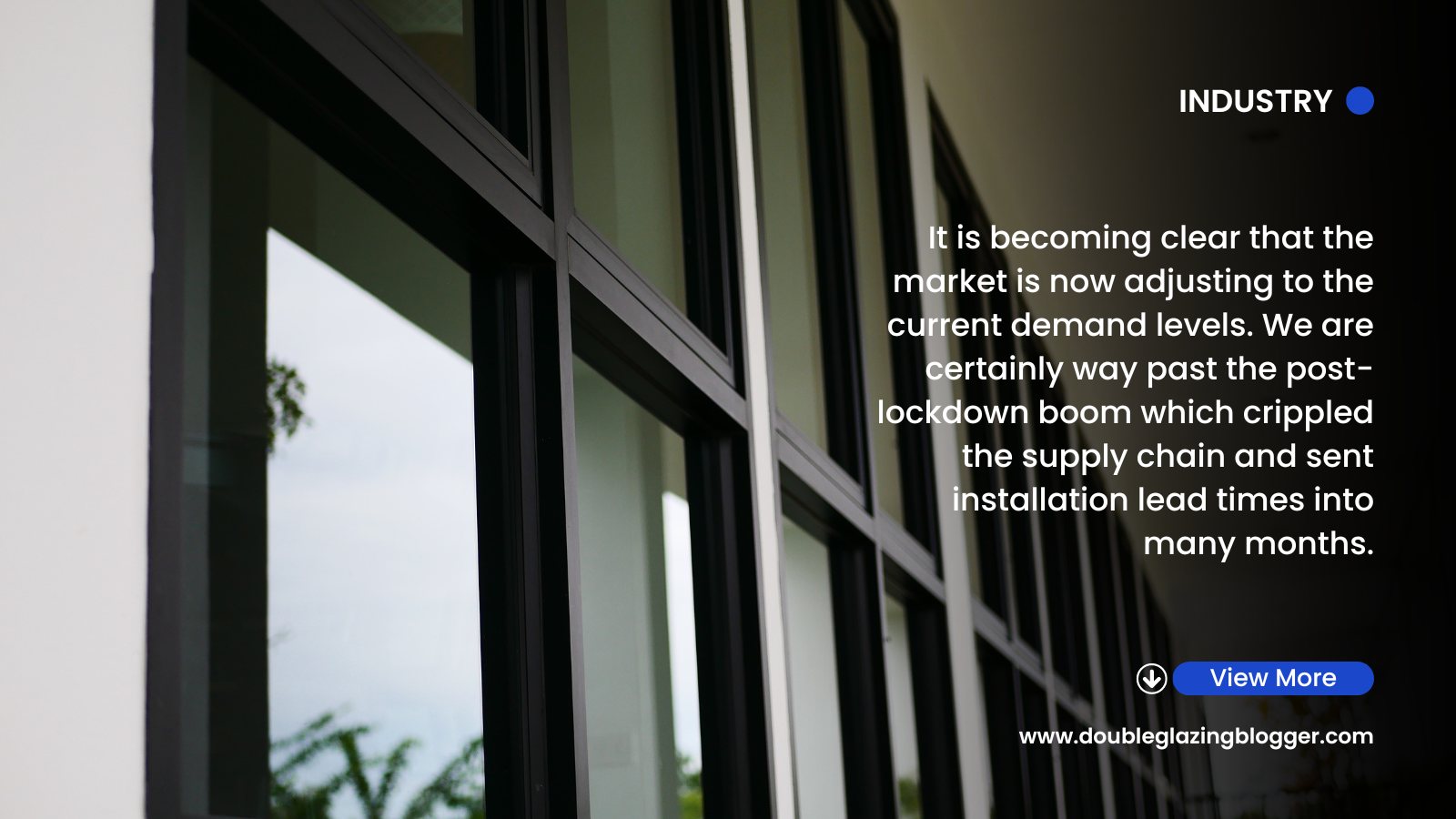We’re looking at 2021 in the rearview mirror and starting to look forward to 2022 in the hopes that for the UK fenestration sector, things might be a little bit smoother.
It’s fair to say this year has been incredibly difficult to navigate. The ongoing pandemic, mixed with a crippled supply chain and price inflation that appears to be out of control. No one is going to forget this year in a hurry.
And whilst there is no sign at all that things will get much better in 2022, I don’t see the supply chain and pricing woes as the biggest problem for next year.
Labour squeeze will hit hard
Why am I not saying that the supply chain problems won’t be the biggest issue for UK fenestration year? Well, we have spent all of this year and some of 2020 coping with it. Nearly two years into a pandemic that is causing all sorts of problems on all sorts of fronts, I feel like although we’re not happy about it, we’re coping with it a bit better at the end of this year than the start. We are learning to become more flexible, communicate more with customers, keep scheduling fairly fluid and pass on price increases down the supply chain to the end-users. So long as we keep doing that we can continue to manage the situation. Yes, it’s not ideal, but it’s largely out of our control until spending drops.
The acute shortage of labour, skilled workers and youth is what is going to be our major battle for 2022. This is not a new problem for our sector. We know this and have known it for longer than I have been in the sector. But the ramifications of not being able to turn things around on this particular issue is now beginning to bite hard.
Installers this year have told me that their ability to grow, or even plan to grow has been held back by the inability to find the right tradespeople to make it happen. Fabricators have told me something similar too during the course of this year.
Being held back in a period of extremely high demand means that we have likely lost out on a significant amount of potential growth. We will look back on this period and wish that we had more of the right people to make the most of this growth opportunity.
Whether 2022 will see demand as high as this year remains to be seen. Many believe the drop is coming at some point in the first half of the year. Still, even before the pandemic boom we have experienced, we were still short of plenty of the right people, and until that situation is resolved, we are going to be held back.
Act, or don’t complain
If you’re waiting for the Government, the education system or society to start looking at trades, including fenestration, differently, then you’ll be waiting a very long time. The fact is, if we want something done, we’re going to have to do it ourselves.
As I have mentioned in previous posts, we’re very good at talking to ourselves about the problem. We know the causes. We know the effects labour shortages are having on all parts of the supply chain in this industry. We know it’s going to get worse. Yet, despite that, our industry, hobbled by internal politics, apathy and an unwillingness to truly commit, has done very little about it.
There are some bright spots. For example, a handful of companies such as VEKA make regular trips to schools and host job fairs to try and attract the right people to their company. I know a few others do something very similar. This is a good approach. Companies should be looking to engage with their local communities. Build deep roots in the area and be seen as a good employer and somewhere where people can craft a career. We need a lot more of the industry to do things like this on a regular basis.
We have tried various schemes and groups within the fenestration to try and build some kind of momentum towards changing attitudes and enthusing the industry to do more. I can’t say they have really worked. Ideas come, they spark some interest and then they fizzle out, which of course is disappointing.
But the fact of the matter is that the fenestration sector is the only place where a change in fortunes on the labour shortages will start. Unless we can all genuinely come together with a joined-up approach, with one voice, behind one coordinated effort, nothing will change. We have this insane inability to be able to work together cross-party on some of the most important issues. The only time I saw some genuine cohesion was during the start of the pandemic when fear was high and the sector was desperately finding a way to continue. And only then did that spirit of togetherness last only a matter of months.
For 2022, we have to recognise that this is a huge threat to us all and that we have to work together on ideas and strategies and actually implement them so that we can start to hope for better times ahead on the skills front.
To get weekly updates from DGB sent to your inbox, enter your email address in the space below to subscribe:
By subscribing you agree to DGB sending you weekly email updates with all published content on this website, as well as any major updates to the services being run on DGB. Your data is never passed on to third parties or used by external advertising companies. Your data is protected and stored on secure servers run by Fivenines UK Ltd.





